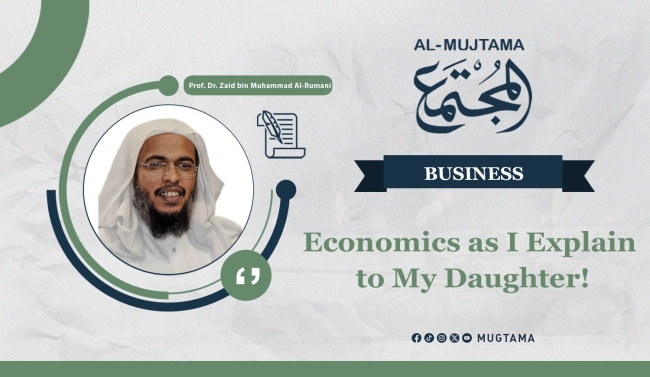Economics as I Explain to My Daughter!
The author’s motivation for writing this book, as he states in the preface of Talking to My Daughter About the Economy: A Brief History of Capitalism, was the result of an invitation to speak directly to young people about economics, underlining that economics is too important to be left solely to economists.
The author, Yanis Varoufakis, a Greek economist and former finance minister, states: "If we want to build a bridge, it’s best to leave that to experts and engineers. If we need surgery, it’s better to find a surgeon to perform it. But books that simplify science are essential in a world where children shy away from scientific curricula."
He emphasizes that fostering a broad appreciation for science serves as a protective shield for the scientific community, which must produce the experts society needs. In this sense, this small book markedly differs from others of its kind.
Varoufakis adds: "As a professor of economics, I have always believed that if we cannot explain economics in language young people can understand, it is simply because we are ignorant. Over time, I realized something else—a fascinating contradiction about my profession that reinforced this belief: the more scientific our economic models became, the less connected they were to the real economy."
This, he argues, is the opposite of what happens in fields like physics, engineering, and other real sciences, where advances in scientific rigor shed more light on how nature operates in reality.
For this reason, the book is an attempt by the author to do the opposite of simplifying economics. If successful, it should inspire readers to take control of economics and recognize that understanding it requires realizing why self-proclaimed experts in the field—economists—are often wrong.
Ensuring that everyone can speak about economics with confidence is, according to the author, a prerequisite for a healthy society, as the successes and failures of economics determine the fate of our lives. Succumbing to economists’ expertise essentially hands over all crucial decisions to them.
The author found joy in writing this book, as it is, by his admission, the only text he has written without footnotes, references, or the tools of academic works. Unlike those serious books, he wrote it in his native Greek.
He explains: "I let the book write itself, without a plan, tentative table of contents, or preliminary outline. Writing it took just nine days. This small book has since been translated into many languages and its reflections have gained a wide audience in various places."
Varoufakis admits: "Writing this book was exceptionally painful, and revising it into its English version was therapeutic—an escape from the miseries and calamities of a collapsing and failing economy. Readers might be surprised by the absence of any mention of capital or capitalism in this book. I deliberately avoided terms like these—not because there’s anything wrong with them, but because they carry heavy baggage that hinders illuminating the essence of things. Instead, I used the term 'market society,' and instead of 'capital,' you’ll find more standard words like 'mechanism' and 'production.' Why resort to jargon if we can avoid it?"
He acknowledged that the book was written in just nine days of conscious effort. It is filled with ideas, phrases, theories, and stories he consciously or unconsciously collected or borrowed since the early 1980s, as he claims, to shape his thinking and help create teaching tools to free students and people from inertia.
-------------------------------------------------------------
For Contact: zrommany3@gmail.com.


